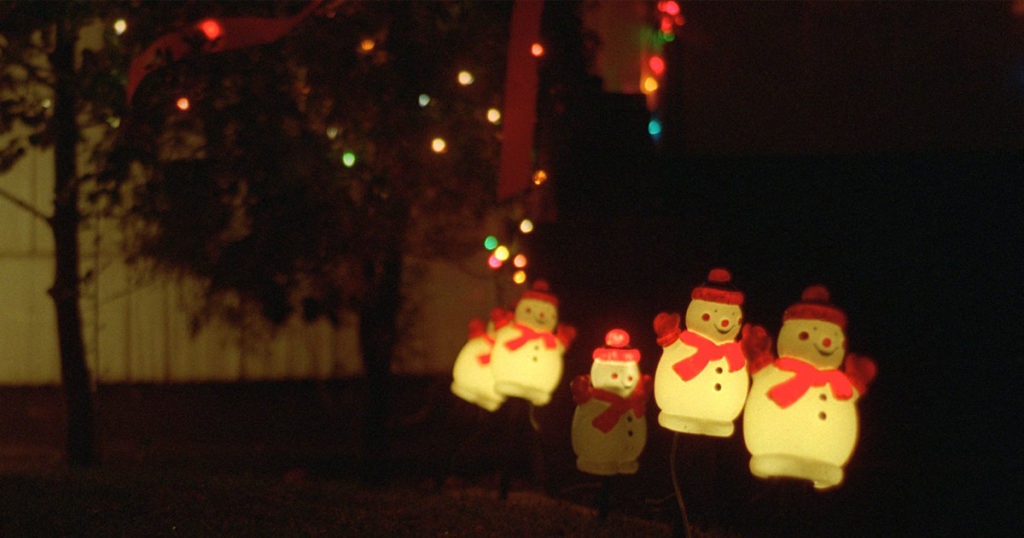
The light from the full moon lent a silky, glacial sheen to the towering front of the cloud, which stretched off to the horizon in both directions. I stood transfixed as it made its way down the street toward me at a little over the town’s speed limit. Ripples and undulations on its front face rose up and disappeared over the top as it progressed, making it appear to revolve back on itself. It was immense—blocking out the moon and the Southern Cross as it passed over, casting the town into shadow. The back of the roll looked quite different from the front—a falling, Cumulus-like wall of cauliflower mounds, silver and black in the moonlight.
This was the cloud that I had crossed the world to see.
—Gavin Pretor-Pinney, The Cloudspotter’s Guide, 2006
There was, of course, no sign of the muleteers. I sat there for over an hour, watching the moonlight retreat from the rocky bastions, a process of infinite majesty and peace. I felt, as Firdausi says, like dust in the lion’s paw.
—Freya Stark, The Valleys of the Assassins, 1934
The names of Alaska are so beautiful they run like fountains all day in the mind. Mulchatna. Chilikadrotna. Unalaska. Unalakleet. Kivalina. Kiska. Kodiak. Allakaket. The Aniakchak Caldera. Nondalton. Anaktuvuk. Anchorage. Alaska is a foreign country significantly populated with Americans. Its languages extend to English. Its nature is its own.
—John McPhee, Coming into the Country, 1976
Everybody knows something has to be kept back for pressure and to anybody puzzled to know what I should suggest that for a beginning it might as well be his friends, wife, children, and self. … We shall be judged finally by the delicacy of our feeling of where to stop short.
—Robert Frost, letter to Sidney Cox, September 19, 1929
The times are nightfall, look, their light grows less;
The times are winter, watch, a world undone:
They waste, they wither worse; they as they run
Or bring more or more blazon man’s distress.
And I not help. Nor word now of success:
All is from wreck, here, there, to rescue one—
—Gerard Manley Hopkins, 1885
How much history can be transmitted by pressure on a guitar string?
—Robert Palmer, Deep Blues, 1981
Bro! Tell me we still know how to speak of kings! …
He spent his youth fists up, browbeating every barstool-brother,
bonfiring his enemies. That man began in the waves, a baby in a basket,
but he bootstrapped his way into a kingdom, trading loneliness
for luxury. Whether they thought kneeling necessary or no,
everyone from head to tail of the whale-road bent down:
There’s a king, there’s his crown!
That was a good king.
—Beowulf, trans. Maria Dahvana Headley, 2020
William had slept badly … and while we were at breakfast that is (for I had breakfasted) he, with his basin of broth before him untouched, and a little plate of bread and butter he wrote the Poem to a Butterfly! He ate not a morsel, nor put on his stockings, but sate with shirt neck unbuttoned, and his waist coat open while he did it.
—Dorothy Wordsworth, The Grasmere Journal, March 14, 1802
It was as if he had fallen briefly asleep and dropped at once into the midst of a powerful and deeply revelatory dream, all the details of which turned transparent the instant he woke up, though the sense, the afterglow, of their significance remained.
—John Banville, Snow, 2020
If we are not together now, it isn’t you or I who are to blame, but the demon that filled me with bacilli and you with love for art.
—Anton Chekhov, letter to his future wife, Olga Knipper, 1900
Children of wealth in your warm nursery,
Set in the cushioned window-seat to watch
The volleying snow, guarded invisibly
By the clear double pane through which no touch
Untimely penetrates, you cannot tell
What winter means; its cruel truths to you
Are only sound and sight; your citadel
Is safe from feeling, and from knowledge too.
—Elizabeth Daryush, Verses: Sixth Book, 1938
Heaped up on the floor, to form a kind of throne, were turkeys, geese, game, poultry, brawn, great joints of meat, sucking-pigs, long wreaths of sausages, mince-pies, plum-puddings, barrels of oysters, red-hot chestnuts, cherry-cheeked apples, juicy oranges, luscious pears, immense twelfth-cakes, and seething bowls of punch, that made the chamber dim with their delicious steam. …
“Come in!” exclaimed the Ghost. “Come in! and know me better, man.”
—Charles Dickens, A Christmas Carol, 1843
The force that through the green fuse drives the flower
Drives my green age; that blasts the roots of trees
Is my destroyer.
And I am dumb to tell the crooked rose
My youth is bent by the same wintry fever.
—Dylan Thomas, 1933
Polar exploration is at once the cleanest and most isolated way of having a bad time which has been devised. … As men will compare the hardships of France, Palestine, or Mesopotamia, so it would be interesting to contrast the rival claims of the Antarctic as a medium of discomfort. A member of Campbell’s party tells me that the trenches at Ypres were a comparative picnic. But until somebody can evolve a standard of endurance I am unable to see how it can be done. Take all in all, I do not believe anybody on earth has a worse time than an Emperor penguin.
—Apsley Cherry-Garrard, The Worst Journey in the World, 1922
“You’re going to have things to repent, boy,” Mr. John had told Nick. “That’s one of the best things there is. You can always decide whether to repent them or not. But the thing is to have them.”
—Ernest Hemingway, “The Last Good Country,” The Nick Adams Stories, 1972
Missing a kick
at the icebox door
It closed anyway
—Jack Kerouac, Book of Haikus, 2003

